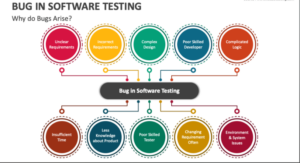A specialist should have specific personality attributes in addition to extensive technical knowledge in order to contribute significantly to the team. We think that in the future, employers will continue to value and seek out the Soft Skills QA Engineers that are described below. While technical expertise like test case creation, automation scripting, and debugging is essential, soft skills are equally crucial. These skills bridge the gap between technical proficiency and workplace dynamics, enabling Skills QA engineer certification to collaborate effectively, solve problems creatively, and adapt to rapid industry changes.The crucial Soft Skills should possess are highlighted in a good QA online certification course.
Here Most important soft skills QA engineers
Communication Skills.
Everything depends on communication. The secret to successful collaboration is the capacity for transparent thinking and expression. A QA engineer must thoroughly clarify the nature of faults and the procedures to duplicate them. Oral and written communication is both a part of it. It would be difficult or even impossible for the rest of the team to adopt adjustments without clear reports.
Empathic Approach.
A wide range of sectors requires the idea of empathy. Basically, empathy is the capacity to comprehend others and put oneself in their place. Empathy in QA and software testing is the desire to comprehend the goals of the client and share their beliefs. Once you are able to determine a client’s top priority, you can ask the right questions and present your opinions in a way that can benefit an end product.
Analytical Skills.
In their regular work, QA specialists analyse software products’ features and behaviours to look for systemic faults. The foundation of such actions is the capacity to gather and process information. Logical thinking, critical reasoning, investigation, data analysis, creativity, and problem-solving are all components of an analytical skill set.
Attention to Detail.
A QA engineer needs to be aware of details and problems that are virtually undetectable. It’s a careful job that calls for a lot of concentration and some scepticism. Paying close attention to the details enables one to identify weak points in an otherwise robust system. Even if there aren’t any obvious errors right now, it encourages double-checking those areas that are typically prone to flaws.
Focus On Quality.
A QA team may be pressured to check complex features fast when the deadlines are short. Even in these situations, a person should be aware of the quality consequences and express their ideas to a client. A QA engineer’s job is to thoroughly inspect a product. The time needed to complete this must be accurately estimated, and the client must be informed. Keep in mind that quality assurance is your objective and that it should always take precedence.
Reasoning Ability.
A thorough technical understanding of the processes is necessary for reasoning. You should use pertinent justifications when outlining to other team members why a particular method is necessary. You should never say to a client, “We need to run performance testing because it will be better this way,” or anything similar. Every recommendation needs to be supported by solid data. It’s also important to be able to communicate complex ideas in a way that non-technical people can comprehend.
Diligence.
Many careers need patient labour and a commitment to learn and advance professionally. Without work and diligent study, it is impossible to become good at what you do. Meanwhile, as technology advances, IT professionals should stay current on emerging trends and best practices. A person’s value as a professional increases if they enjoy going to events for their industry, developing their hard Soft skills, keeping up with business news, etc. On the other hand, being constrained to a single product hinders one’s ability to advance professionally.
Teamwork.
The phrase a team player used by an HR professional isn’t just another cliché in a job description. There are persons with remarkable abilities and knowledge who struggle to work with others. Software testing is a collaborative effort. Even if a customer only needs one specialist to work on a project, they are still expected to collaborate closely with stakeholders and developers. Too much reliance on one’s abilities can have an impact on the outcome. Smooth teamwork is even more crucial when multiple QA specialists are working on a project.
Relating To End-users.
Every piece of software is viewed professionally by QA engineers. The initial objective) looking for weaknesses (often turns into a professional risk. Product owners look at software from a commercial standpoint. End users, meanwhile, are probably to have distinct strategies, anticipations, and experiences. In order to connect with a product like genuine users with various origins and varying levels of digital literacy, QA specialists must detach their minds from prior experiences.
Commitment.
The only way to become a successful QA engineer is to be willing to put in the time and effort necessary to increase the quality of a software product. A person needs to be aware of their place in the process and accept full accountability for their deeds. Commitment and responsibility are essential in all areas, including interpersonal relationships with clients, teamwork, and time management.
Conclusion
The demand for skilled QA engineers continues to rise, and mastering these 10 soft skills can set you apart in this competitive field. At H2K Infosys, we offer Quality Assurance Tester Training and QA Engineer Certification programs designed to equip you with both technical and soft skills.
Take the next step in your career by enrolling today and unlocking your potential as a successful QA engineer!






























One Response